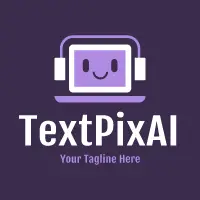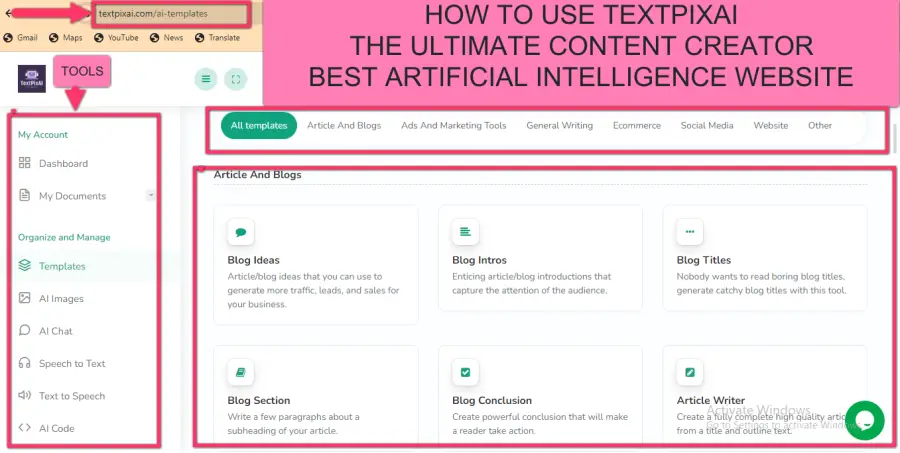AI in Drug Discovery - Revolutionizing Pharmaceutical Research
Introduction
In the realm of healthcare, drug discovery stands as an essential frontier in the quest to improve and save lives. The process of identifying and developing new medications, however, has long been characterized by complexity, cost, and time-consuming research. The advent of artificial intelligence (AI) has ushered in a new era in pharmaceutical research, promising to transform and expedite drug discovery like never before. In this comprehensive guide, we embark on a journey to explore the potent intersection of AI and drug discovery, unraveling its core principles, practical applications, and the profound impact it has on the pharmaceutical industry.
You may also like to read:
Personalized Medicine - Tailoring Treatment for Individual Health
Understanding Drug Discovery
Navigating the Drug Discovery Process
Drug discovery is a multifaceted and intricate process that spans from target identification to clinical trials. This journey involves identifying disease targets, designing and synthesizing potential drug candidates, and rigorously testing their safety and efficacy. The conventional approach to drug discovery is known for its painstakingly slow pace and high attrition rates, resulting in exorbitant costs and lengthy development timelines.
The Imperative for Innovation
Despite the importance of drug discovery in healthcare, the pharmaceutical industry has faced numerous challenges. These challenges include identifying viable drug targets, navigating the complexities of drug design, and predicting a compound's efficacy and safety. The demand for innovative solutions to address these challenges has catalyzed the integration of AI into pharmaceutical research.
The Emergence of AI in Drug Discovery
Deciphering Artificial Intelligence
At the heart of the AI revolution in drug discovery lies the concept of artificial intelligence. AI encompasses a wide range of technologies and approaches, including machine learning and deep learning. These systems are designed to process vast amounts of data, identify patterns, and make predictions or decisions autonomously. In the context of drug discovery, AI leverages these capabilities to streamline and enhance the various stages of the process.
A Convergence of Technologies
The convergence of AI and pharmaceutical research is a pivotal development. AI complements and augments traditional drug discovery methods, making the process more efficient and cost-effective. By harnessing AI's data-driven insights, researchers can make informed decisions at every stage of drug development, from target identification to clinical trials.
AI-powered Drug Target Identification
Unveiling Disease Targets with AI
One of the earliest and most impactful applications of AI in drug discovery is target identification. AI algorithms sift through vast datasets, including genetic information and protein interactions, to pinpoint potential disease targets. These targets are often specific proteins or genes associated with a particular disease, and they serve as the foundation for developing new therapies.
Predicting Target Interactions and Mechanisms
AI doesn't stop at target identification; it goes further by predicting how potential drugs interact with these targets and influence molecular mechanisms. Through sophisticated modeling and simulation, AI helps researchers understand the intricacies of drug-target interactions, facilitating the design of compounds that are more likely to succeed.
Case Studies in AI-driven Target Identification
Several success stories highlight the transformative impact of AI in drug target identification. For example, researchers have used AI algorithms to identify novel drug targets for diseases like Alzheimer's and cancer. These discoveries have opened up new avenues for developing innovative treatments and potential cures.
Accelerating Drug Design and Development
A Paradigm Shift in Drug Design
AI-powered drug design is revolutionizing the way pharmaceutical researchers create new compounds. Rational drug design, guided by AI-generated molecular structures, allows for the creation of compounds with specific properties and target interactions. This targeted approach minimizes the need for extensive trial-and-error experimentation.
Predicting Drug Toxicity and Side Effects
AI models excel in predicting potential drug toxicities and side effects. By analyzing historical data and molecular properties, AI algorithms can identify compounds that are likely to cause adverse reactions. This proactive approach enhances safety and reduces the likelihood of late-stage clinical trial failures.
Optimization of Drug Candidates
AI-driven optimization helps refine drug candidates to improve their efficacy and safety profiles. Researchers can fine-tune molecules to enhance their binding affinity to disease targets or reduce off-target interactions. This iterative process saves time and resources in drug development.
Drug Repurposing and AI
Unlocking New Potential in Existing Drugs
Drug repurposing, or repositioning, involves identifying new therapeutic uses for existing drugs. AI plays a pivotal role in this process by analyzing large datasets and identifying potential repurposing candidates. This approach accelerates drug development, as existing drugs have already undergone extensive safety testing.
AI-driven Screening of Drug Libraries
Pharmaceutical researchers rely on AI to screen vast libraries of existing drugs for potential repurposing candidates. By analyzing drug properties and target interactions, AI algorithms can identify drugs that have the potential to treat different diseases or conditions. This approach breathes new life into established medications.
Real-world Success Stories
AI-driven drug repurposing has yielded impressive results. For instance, researchers have identified existing drugs that show promise in treating conditions like rare cancers and neurodegenerative diseases. These discoveries offer hope to patients with limited treatment options.
Challenges and Ethical Considerations
While AI holds immense promise in drug discovery, it also presents a set of challenges and ethical considerations.
Data Privacy and Security
The handling of vast datasets containing sensitive patient information and proprietary research data demands robust data privacy and security measures. Researchers and pharmaceutical companies must ensure that data remains confidential and protected from unauthorized access or breaches.
Addressing Bias and Transparency
AI algorithms are not immune to bias, and their decisions can sometimes lack transparency. Ensuring fairness in AI-driven drug discovery is essential to avoid disparities in treatment development. Researchers must actively work to identify and mitigate biases in algorithms.
Ethical Considerations
The use of AI in drug discovery raises ethical questions related to data consent, transparency in decision-making, and the potential for job displacement in the pharmaceutical industry. Ethical guidelines and regulatory frameworks must be established to navigate these challenges.
Future Trends and Innovations
As AI continues to evolve, several exciting trends are shaping the future of drug discovery.
Advancements in AI Algorithms
Ongoing research and development are expected to lead to even more powerful and efficient AI algorithms for drug discovery. These algorithms will have the capacity to analyze increasingly complex datasets and make more accurate predictions.
Integration with High-throughput Screening and Genomics
AI will play an integral role in integrating high-throughput screening techniques with genomics data. This synergy will enable researchers to identify drug candidates faster and with greater precision.
AI in Personalized Medicine
AI-driven drug discovery will contribute to the expansion of personalized medicine. By considering individual genetic and molecular profiles, researchers can develop treatments that are tailored to each patient's unique needs.
Quantum Computing in Drug Discovery
The advent of quantum computing holds the potential to revolutionize drug discovery by performing complex simulations and calculations at unprecedented speeds. This promises to accelerate drug design and optimization.
Benefits to Pharmaceutical Research
The adoption of AI in drug discovery offers a multitude of benefits to pharmaceutical researchers and the industry as a whole.
Accelerated Timelines and Reduced Costs
AI streamlines the drug discovery process, significantly reducing the time and resources required to bring a drug to market. This can lead to faster development and lower costs.
Increased Success Rates
AI enhances the chances of success in drug development by providing data-driven insights and predictions. This results in a higher rate of drugs making it to market.
Precision and Personalization
AI enables precision medicine by tailoring treatments to individual genetic and molecular profiles. This ensures that patients receive therapies that are most likely to be effective.
Addressing Unmet Medical Needs
AI-driven drug discovery has the potential to tackle rare diseases and conditions with limited treatment options. It opens doors to innovative solutions for unmet medical needs.
Conclusion
AI in drug discovery represents a seismic shift in pharmaceutical research. It accelerates drug development, enhances safety, and brings us closer to more personalized and effective treatments. As pharmaceutical researchers and the industry at large continue to harness the power of AI, it is imperative to navigate the challenges and ethical considerations associated with this transformative technology.
By prioritizing data privacy, transparency, and ethical guidelines, the pharmaceutical industry can unlock the full potential of AI in drug discovery, ushering in an era of healthcare that is faster, more efficient, and more patient-centered than ever before.
References
-
"Artificial Intelligence for Drug Discovery, Biomarker Discovery, and Molecular Exploration" - Drug Discovery Today Read more
-
"Artificial Intelligence for Drug Discovery" - ScienceDirect Read more
-
"Artificial Intelligence in Drug Discovery: Methods, Applications, and Recent Advancements" - Computational and Structural Biotechnology Journal Read more







